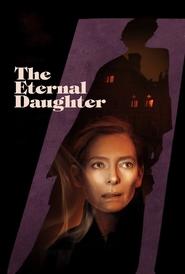Tilda Swinton writes very movingly in the introduction of Romantic Imaginations, a book on the cinema of Michael Powell and Emeric Pressburger, about how Michael had once written an (unrealised) treatment for a film, with a suggestion in the margin that Tilda might be inclined to include her own dog(s).
Julie’s entrapment in an “eternal” daughterhood is heightened, at least from her own perspective, by the fact that she herself does not have children. At one point she overhears Rosalind talking to Bill about her thwarted grandmaternal ambitions, in which she offers the familiar suggestion that instead of progeny Julie “has her work, she has her films.” If Julie’s films are comparable to offspring, and therefore function in some way as Rosalind’s grandchildren, then this film in particular is doubly symbolic: Julie is trying to reproduce her mother in celluloid, rather than through the transmission of genetic material. This gestures towards a more expansive understanding of maternity, one that doesn’t rely on linearity. (We remember, too, that the hotel used to belong to Rosalind’s childless aunt, who “filled” the place with children; she has a more important role in her memories than her actual mother.)
— Helen Charman (Another Gaze)
Despite how spatially and temporally constrained the film is, Hogg conjures the sense that, just offscreen, Julie and her partner are attempting to eke out slips of freedom in heterosexuality’s compromised country. Those slips might be partial, but — seeing as Julie no longer feels that her romantic desires and her work are in such urgent competition — perhaps they are enough.
— Victoria Uren (n+1)

